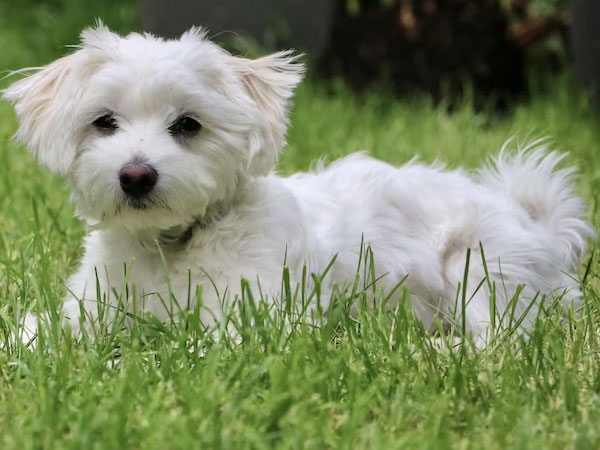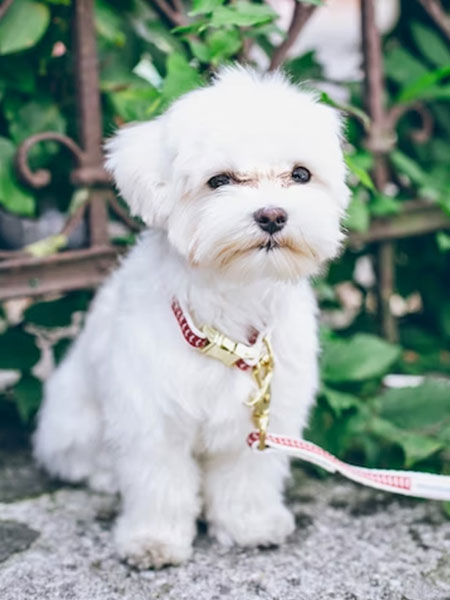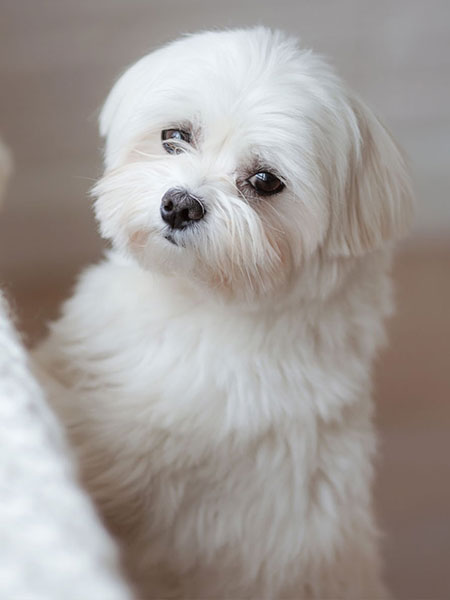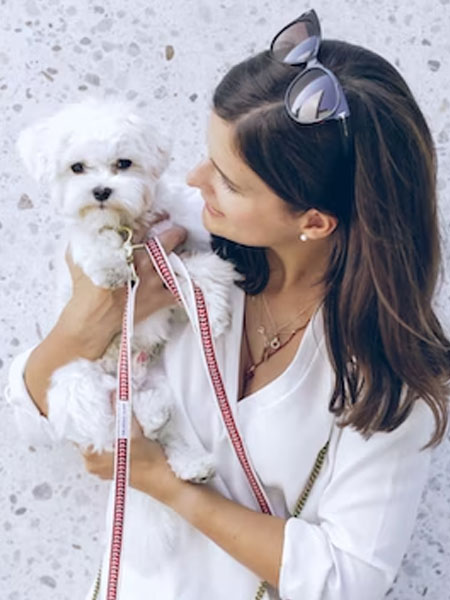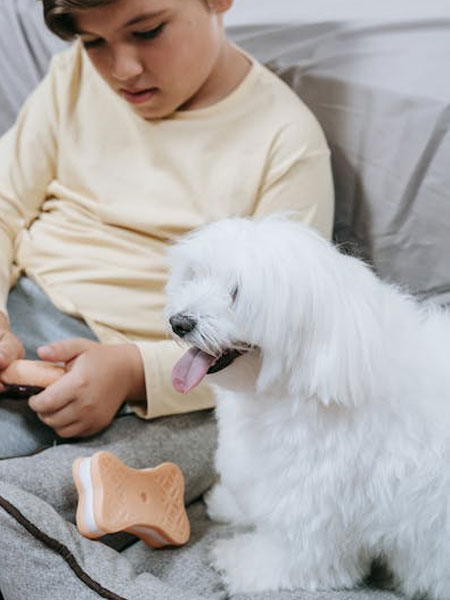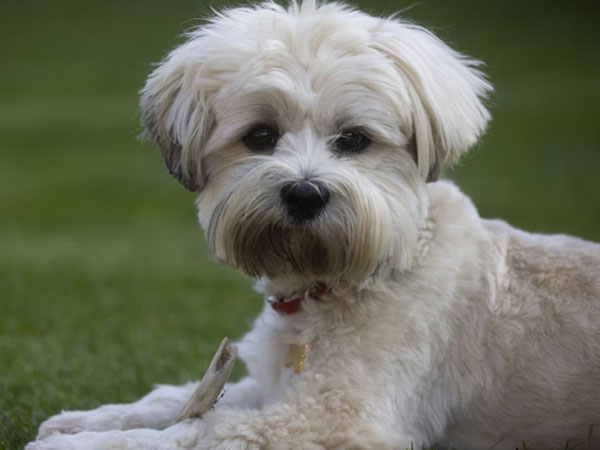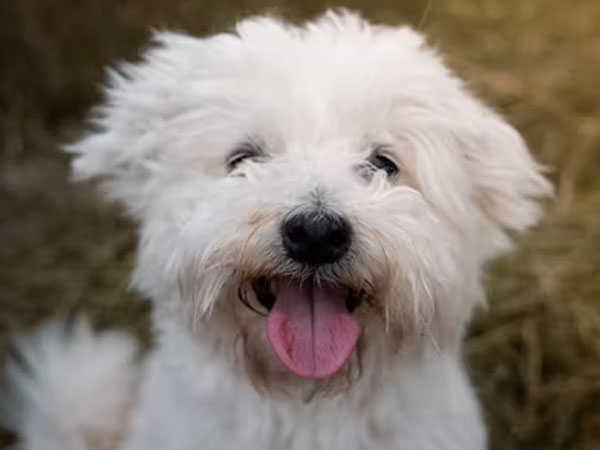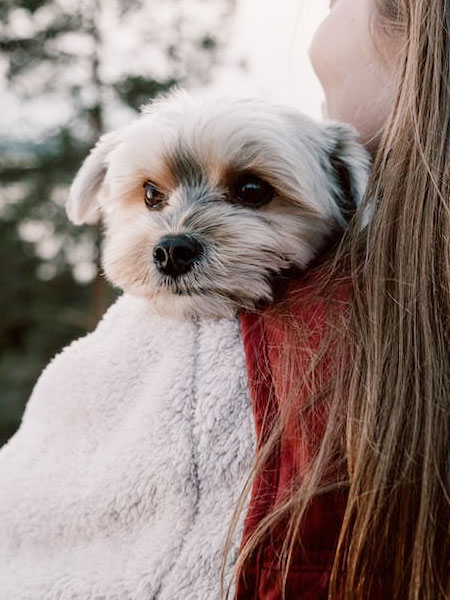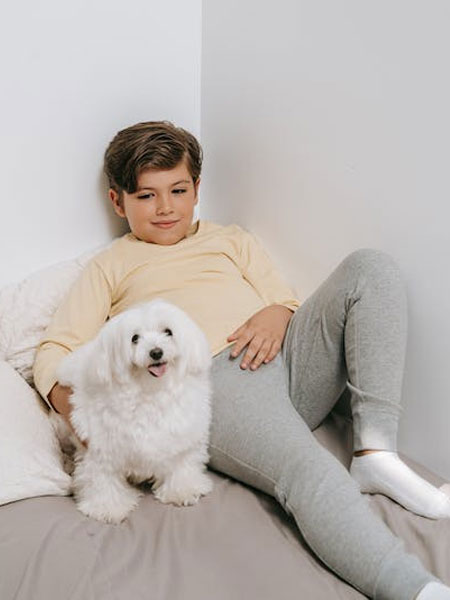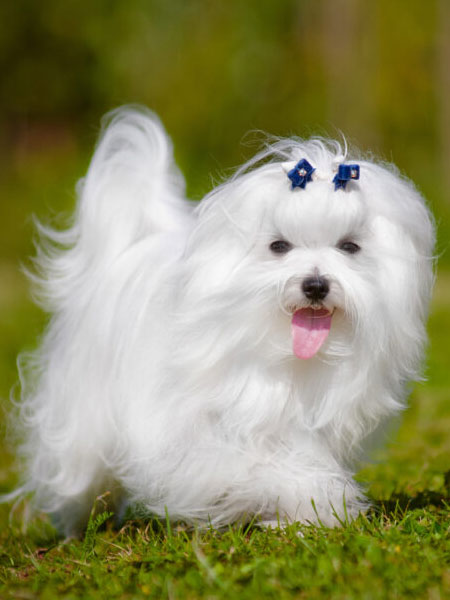This post is also available in:
Français (French)
Español (Spanish)
Maltese dogs have long been beloved companions to people. Renowned for their playful yet loyal personalities as well as their beautiful white coat, Maltese are beloved small, fluffy breeds beloved by people around the world.
Maltese dogs are known for bringing joy into any home and are an ideal addition to many families as pets. Maltese canines have been beloved companions since Ancient Greece and Rome where they served in royal courts as royal companions.
Even though today’s Maltese may not appear regal, they still possess many endearing characteristics that make them great pets. We will explore some of these qualities that set Maltese dogs apart and why they remain popular choices when it comes to canine companionship.
History of the Maltese Dog
The Maltese is a delightful and beloved small dog breed with a long history. Its exact origins are unknown, but some believe it dates back more than 2,000 years to ancient Greece or Rome where they were kept as lapdogs by the wealthy in their palaces.
In 1888 The American Kennel Club (AKC) recognized the Maltese for registration and since then has worked towards standardizing its breed characteristics.
Though one of the smallest dog breeds – usually weighing between four and six pounds – these pups have big personalities. They are active dogs that love playing and exploring outdoors, making them perfect companions for those looking for an energetic pup.
But don’t let their size fool you; due to their intelligence and trainability, Maltese can excel at obedience training, agility courses, tracking events and even therapy work.
Maltese are social creatures who thrive on human interaction and make excellent family pets. Their gentle nature makes them great around children, while their spunky attitude adds fun to any home!
With proper care and nutrition this cheerful little companion can live up to 12-15 years old, so if you’re looking for a loyal lifelong friend look no further than a Maltese!
Physical Characteristics
Maltese dogs are truly unique. Dating back centuries, this breed holds an important place in many hearts today.
Let us now consider some of its physical attributes which make it so distinctive.
One of the hallmark features of Maltese dogs is their distinctive body structure; this breed boasts small frame with short legs and long ears that hang near their cheeks.
Its coat type varies greatly, ranging from smooth to curly or wavy fur which requires frequent brushing. This makes them great lap dogs as they love to be petted and snuggled up close!
Overall, Maltese dogs stand out due to their unique physique and luxurious coat. Furthermore, their friendly nature make them excellent companions who never fail to bring joy into life.
Temperament And Personality
Your content goes here. Edit or remove this text inline or in the module Content settings. You can also style every aspect of this content in the module Design settings and even apply custom CSS to this text in the module Advanced settings.
Maltese are known for their cheerful, playful nature. Pets bring joy and bring light-heartedness into any home they enter; much like sunshine on an overcast day! Their warmth makes it impossible not to want them in our lives!
Their outgoing personality also makes them great companions when it comes to social interaction. From playing fetch with children in the backyard to snuggling up against an adult while watching television, these little dogs always know how to make people smile.
Plus, they get along well with other animals too:
- Cats: While they may take a few days (or even weeks) to warm up, many Maltese will eventually become friends with cats living in the same household.
- Dogs: Maltese love spending time with their canine counterparts and can easily be taught new games or tricks by another pup.
- Other small animals: These adventurous pups usually don’t mind having birds, hamsters, guinea pigs, or rabbits as roommates either!
It’s no wonder why Maltese remain one of the most popular companion breeds; there is simply something special about their personalities that draw people in. Their friendly demeanor combined with their playful nature truly make them a wonderful addition to any family.
Health And Lifespan
Maltese are wonderful companions, yet even they can suffer illness or injury. Therefore, it is vital for owners to understand their specific health needs so as to keep their pet happy and healthy throughout their lives.
| Health Issues | Prevention/ Treatment | Lifespan |
|---|---|---|
| Eye Diseases | Regular Checkups | 12-15 Years |
| Dental Diseases | Brushing | |
| Infections | Vaccinations |
Early identification of illness can be essential in avoiding more serious problems down the line. Therefore, it’s essential that your Maltese receive regular veterinary checkups, to identify eye or dental diseases or dental problems before they worsen and vaccinations to protect against dangerous infections like parvovirus, distemper and rabies that could potentially be fatal if left untreated – with proper preventive care they should live between 12-15 years!
It goes without saying that providing adequate nutrition also contributes greatly towards maintaining good overall health for your maltese pet. A high quality diet will not only ensure optimal growth during puppyhood, but also support a strong immune system later in life. In addition to food choices tailored specifically to the breed’s needs, treats can be used sparingly as rewards for obedience training – just make sure you pick low fat snacks! Taking these steps will help ensure your dog lives a long and enjoyable life by your side!
Grooming
Your content goes here. Edit or remove this text inline or in the module Content settings. You can also style every aspect of this content in the module Design settings and even apply custom CSS to this text in the module Advanced settings.
Have you ever wondered what it takes to groom a Maltese dog? With their long, luxurious, white coats and affectionate nature comes the responsibility of bathing rituals and coat care. To ensure your pooch looks its best, here are some tips for how to keep them looking great:
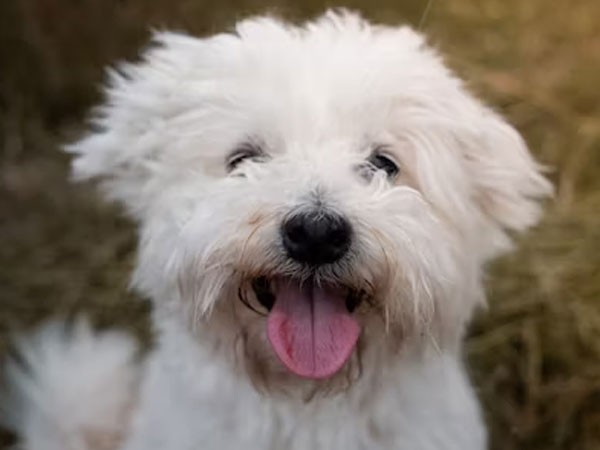
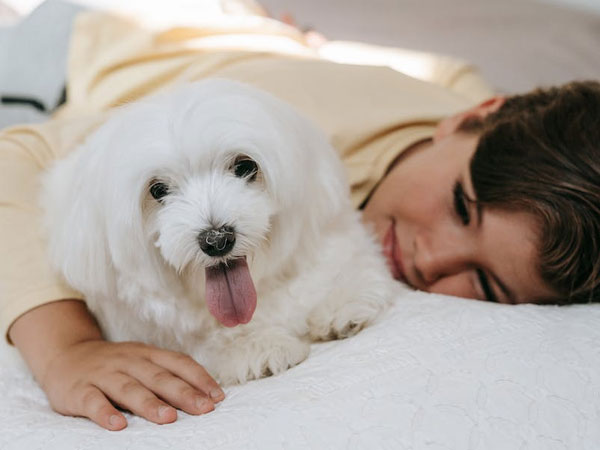
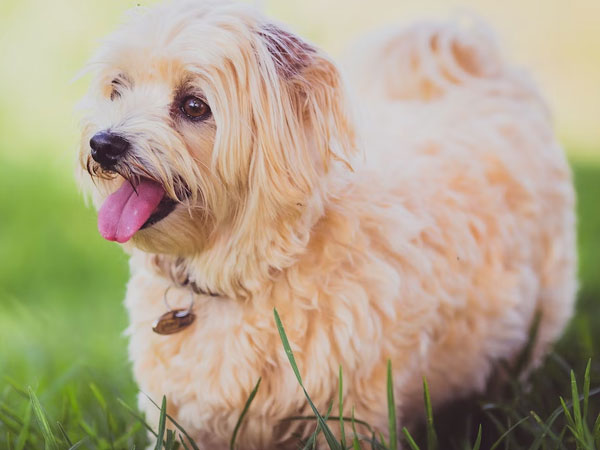
Bathing Rituals
Give baths every 2 weeks or as needed. Use lukewarm water and high quality shampoo formulated for dogs. Rinse thoroughly using gentle circular motions on the fur & skin.
Coat Care
Brush frequently with a soft bristle brush (especially in areas where tangles occur). Trim nails regularly to prevent scratching of furniture/skin. Regularly check ears for debris buildup & wax build up; use an ear cleaner if necessary.
Maltese puppies can be quite a handful but they also make wonderful companions! It is important to remember that proper grooming not only keeps these pups looking good but also contributes to their overall health and wellbeing.
Training
Training a Maltese dog can be an incredibly rewarding experience for both the pet and their owner. Positive reinforcement is key when training this breed, as it reinforces good behavior while discouraging negative behaviors from being repeated. Reward-based training should also be used to promote positive results with minimal effort, such as providing treats or verbal praise after desirable responses.
When training any animal, consistency is paramount; all family members must agree on commands, rewards, and punishments in order to create clear boundaries that are easy for your pup to understand. This will help ensure that your Maltese responds quickly and reliably to instruction.
Additionally, keep sessions short but frequent – especially during puppyhood – so your pet doesn’t become overwhelmed by too much information at once.
As every dog learns differently and has unique needs when it comes to training, trial-and-error can be useful in finding which methods work best for your specific pup. With patience and dedication you will achieve success teaching them essential skills!
Exercise Requirements
It is commonly said that a Maltese dog is particularly active and has high energy, but how often should they be exercised? It could be argued that there are no set rules for the intensity and frequency of exercise for this breed. But does scientific research support this theory?
To answer this question, let’s look at some key points:
- Exercise intensity – A daily walk of 30 minutes to an hour will suffice to meet the physical needs of a Maltese.
- Exercise frequency – Twice a day walks would be beneficial in order to stimulate both mental and physical activity.
- Mental stimulation – Playing interactive games such as fetch or hide-and-seek can help keep them mentally sharp while also providing ample opportunity to expend their excess energy.
- Socialization – Taking your pet on more regular outings with you outside of home will allow them to become familiarized with people, animals, environments etc., which can lead to improved social behavior overall.
Exercise is essential for any type of canine, including those from the toy group like the Maltese; it helps maintain good muscle tone, agility, general health and even temperament. While ensuring adequate exercise routine may take effort and dedication from owners, it ultimately brings about many long term benefits for both parties involved!
Diet And Nutrition
Maltese dogs are known to have particular dietary needs. Their small size requires that they eat smaller portions of food than other dog breeds, and their sensitivity to certain ingredients means careful consideration must be taken when choosing a diet plan for them. Dental care is also important in maintaining the health of Maltese dogs; this breed often suffers from dental disease due to tartar buildup. Regular brushing at home or professional cleaning can help keep their teeth healthy and prevent further damage.
Maltese dogs are known to have particular dietary needs. Their small size requires that they eat smaller portions of food than other dog breeds, and their sensitivity to certain ingredients means careful consideration must be taken when choosing a diet plan for them. Dental care is also important in maintaining the health of Maltese dogs; this breed often suffers from dental disease due to tartar buildup. Regular brushing at home or professional cleaning can help keep their teeth healthy and prevent further damage.
When it comes to diet types, Maltese need special attention as well. Dry kibble should always be chosen with caution since some varieties contain fillers that may not agree with their sensitive stomachs. Wet foods with high-quality proteins and no artificial additives tend to work best for these pups’ tiny tummies. Keep an eye out for treats containing preservatives or chemicals which could disrupt digestion, as these could result in stomachaches.
Prior to deciding on a diet plan for their pet, it’s essential for owners to fully comprehend its nutritional requirements – speaking to your veterinarian can provide invaluable information regarding which food best meets the needs of your pup and how much should be fed daily.
Proactive measures like regular check-ups can spot any potential problems early, keeping your furry friend happy and fit for years to come!
Common Health Issues
Maltese dogs are beloved breeds, and to ensure they remain healthy it’s essential that pet owners understand the health issues they can encounter. According to Pet Health Network, Maltese have an average lifespan between 12-15 years compared with other breeds but certain conditions that may arise specifically in Maltese should be watched out for by owners.
Skin allergies can range from mild irritation to intense itching and discomfort depending on their severity. A veterinarian may need to prescribe medications if symptoms such as hair loss or infection arise, however.
Eye infections are caused by bacteria or viruses and typically manifest with redness, cloudiness or discharge from the eye. Treatment typically entails antibiotics being prescribed or special drops may be utilized as appropriate.
It is always recommended that regular vet checkups occur throughout your Maltese’s life so any potential problems can be caught early on before they become too serious. Regular grooming sessions and keeping up with vaccinations can help ensure your dog remains its happiest and healthiest self!
Socialization
Maltese dogs are beloved family companions. Socialization plays an integral role in shaping your Maltese puppy into an adult dog with healthy relationships with people and other animals, providing your puppy with the foundation necessary for a successful future.
Socializing your Maltese dog will enable them to feel more confident when meeting new people or animals, and will reduce fear-based behaviors like barking at strangers, cowering from unfamiliar environments, or aggressiveness towards other pets.
The more exposure they have to different people and situations during their formative years, the better equipped they’ll be to handle whatever life throws at them later on.
Playtime should be part of every Maltese owner’s daily routine as this gives your pup plenty of opportunities to practice their social skills while having fun! Take them out on regular walks so they can explore new places and meet new friends along the way.
Invite guests over regularly and teach them how to interact politely by rewarding good behavior with treats or verbal praise. You may even want to consider enrolling them into doggy daycare once in awhile where they can make furry pals too!
Socializing is essential for all puppies but especially important for Malteses – not only does it provide long term benefits like reducing anxiety, it also ensures that these sweet little pooches get all the love and attention they deserve!
Activities For Maltese Dogs
Maltese dogs are more than just cuddly companions; they have a wild side too! With the right activities and training, these pint-sized pups can unleash their energy in some fun outdoor sports. From quick agility courses to exciting tricks, there’s something for every Maltese pup.
Agility courses provide an ideal way for your furry friend to stay fit while having tons of fun. These obstacle courses involve weaving through poles, running up small ramps and jumping over hurdles – perfect for those with pent up energy. And don’t worry if you think it might be too hard or scary – most courses come with adjustable levels so even timid pooches can give it a go!
If your pup is already familiar with basic commands like sit and stay, why not try teaching them some new tricks? Not only does this keep them mentally stimulated but it also helps strengthen the bond between you both.
Be creative! Your little friend could soon be performing backflips when given commands or shaking hands (or paws!) when greeting visitors! Training Maltese dogs requires finding what works for both of you, from obedience classes to seasonal games; the possibilities are truly limitless!
Alternatives To Maltese Dogs
Pet ownership can be an exciting adventure for the entire family, with numerous breeds of dog available and each offering its own set of characteristics. If you’re searching for something similar to a Maltese, there are other wonderful alternatives which offer just as much joy, companionship, and affection.
One option for people looking for companion animals are toy breeds like Chihuahuas, Papillons, Toy Poodles, Yorkies, Bichon Frises or Morkies (a mix between Maltese and Yorkshire Terrier). These playful puppies typically weigh 4-12 lbs so require little space! Plus they are often hypoallergenic which makes them great options for people suffering from allergies. As always, remember to adopt, not buy, as there are thousands of dogs currently in shelters that are waiting to arrive to a loving home, and certainly you will find in here a small pup that will make you feel the most beloved being on earth.
No matter the breed of pup you select, they will all bring unconditional love and plenty of laughter into your life! Together you’ll embark on adventures you won’t soon forget; choosing them could very well be one of the best decisions of your life!
Finding A Maltese Dog
Finding your ideal Maltese dog can be both thrilling and fulfilling; whether through adoption or purchasing from a breeder. Before making your final selection there are important considerations you must keep in mind before making your final choice.
Rescue organizations are the ideal option when looking to adopt a Maltese dog as they offer health screenings and behavioral assessments of their animals to make sure that they fit well into your household. Plus, many rescues offer discounted spaying/neutering rates and vaccination services at reduced rates; ultimately you will give an animal in need a loving home!
No matter which path you take – adoption or purchasing from a breeder – here is what should be kept in mind:
Health screenings/behavioral assessments (for adoptions)
- Researching breeders thoroughly (including customer references/reviews)
- Visiting breeders in person (if possible)
- Asking questions about parental medical history & genetic testing results
- It’s better to adopt from a shelter than buy from a breeder
To make sure that everything goes smoothly and safely while finding your new furry family member, these steps should all be followed carefully and thoughtfully!
How To Care For A Maltese Dog
Although some may think that Maltese dogs require a lot of attention and effort, they are actually relatively easy to care for.
With the right socializing methods and toy selection, you can enjoy having one of these lively pets in your home. To ensure your Maltese has a good life with you, it’s important to get them used to being around other people and animals from an early age. Take them on short walks or have playdates at the park so they stay comfortable around different types of creatures and environments
You should also make sure to provide plenty of toys for them to exercise and keep their minds occupied when left alone. Selecting toys that promote physical activity will be beneficial for their health as well as help entertain them throughout the day.
Maltese dogs are full of energy and personality, giving any home lots of joy – just remember that regular brushing is needed to maintain their beautiful white coat!
Plus, don’t forget about feeding them quality food so they remain healthy and happy long into their senior years together with you.
Frequently Asked Questions
What Type Of Environment Is Best Suited For A Maltese Dog?
Maltese dogs are small in stature but have big personalities, so they need plenty of regular physical activity and mental stimulation in order to stay happy and healthy. Regular walks, runs, or trips to the park will help keep them fit while also providing an opportunity to interact with other people and animals.
In addition, if possible, having another pet around would be beneficial as it can provide companionship when owners aren’t available.
How Often Should a Maltese Dog be Groomed?
Maltese dogs are small but have long coats that require frequent brushing to keep them looking at their fluffy best. Bathing necessities should be done 2-3 times per month, although some owners choose to do it more often if needed – this could depend on dietary needs or lifestyle.
Brushing should take place 2-3 times weekly with special attention being paid to areas under the ears, around the eyes and behind the legs where tangles can develop quickly. Trimming nails every few weeks will help maintain good foot hygiene as well as preventing scratches when playing.
Is A Maltese Dog An Appropriate Pet For A Family With Young Children?
Maltese dog is often overlooked, this breed can make an excellent companion in such households due to its socializing and exercise habits.
Malteses are friendly and have a great disposition towards children, so they can be easily trained to get along well with them. Their moderate energy level ensures that they don’t require too much exercise or playtime.
Are There Any Common Health Issues Specific to Maltese Dogs?
Maltese owners should pay careful consideration to the feeding habits and exercise needs of their pup to help prevent or manage conditions like patellar luxation (slipping kneecap) and progressive retinal atrophy (eye disease).
These small breeds can also suffer from collapsed trachea which is caused by excessive pulling on a leash or collar.
What Is the Average Lifespan of a Maltese Dog?
An average lifespan for any breed of canine companion is 10-13 years.
Maltese dogs stand out as an exception to this trend as they can live up to 15 years with proper care and socialization techniques. It is important that these pint sized pooches receive regular exercise and training methods in order for them to reach the full potential of their longevity.
Conclusion
Maltese Dogs make excellent family companions. Small, low maintenance and healthy, their lifespan averages 14 years.
With proper grooming, exercise, and plenty of love from their owners, these little pups can offer years of love and companionship.
Maltese Dogs have been around since ancient times – making them one of the oldest breeds! I find it fascinating that, despite looking like toy breeds, they are one of the oldest existing!
Are You Searching for the Ideal Maltese Dog to Add to Your Family? The Maltese is sure to fulfill this role perfectly!
“However, many dogs, Maltese dogs included, are looking for permanent homes with caring families. If you want to give a dog a second chance at life, consider adopting from a rescue group like Bone Voyage Dog Rescue.
The non-profit Bone Voyage Dog Rescue saves dogs in need in Mexico and finds them forever homes in the United States and Canada. They offer foster care, veterinary treatment, and transportation services to guarantee that their dogs have promising futures. When you adopt a dog from Bone Voyage Dog Rescue, you’re not only providing a forever home for a deserving animal but also helping reduce the number of strays in the neighborhood.
Why not adopt a Maltese dog or any other dog in need from Bone Voyage Dog Rescue if you’ve been considering bringing a furry friend into your home? By giving these amazing pets a home, you will be making a difference in their lives.
For more information about our adoption program, please call +52 3329718011 or email us at [email protected].”

